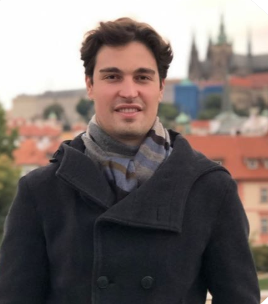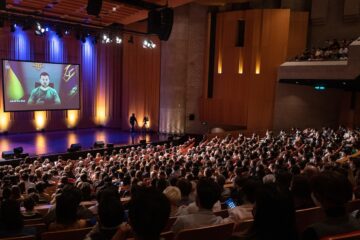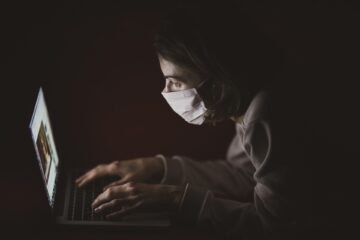
On Friday 8 May 2020 I was expecting to have another ‘ordinary’ day starting at 8 am with my online German language course and proceeding with my master studies related to European politics. To my surprise, shortly after my class finished my mobile phone rang – and being an international student who relies solely on social platforms, it is rare for me receive any phone calls. Prima facie, I did not recognise the phone number and for a reason I can of yet not explain, I had the intuition that the day of repatriation to my home country, Greece, had finally come.
Hurrah, my feeling was right! The phone call came from the Embassy of the Hellenic Republic in Poland informing me of a scheduled flight available for only a few Greek citizens who had formally applied for repatriation. I had filled the necessary documents a month earlier and therefore, I was up in the priority list. When the call was over, I cried from relief: “Finally, the forgotten man can return home!” I was so overwhelmed by the prospect of going home that I did not care for the tremendous cost of a flight from Warsaw to Athens – an amount of money that someone could spend to travel outside of Europe. However, I did not care at that time, I just wanted to return home.
In my view, the Polish government had implemented far too strict measures to contain the spread of the virus. At best, the measures implemented can be described as a rigid legal framework that encompassed everybody, including of course international students like myself being an Erasmus Mundus master’s student at the Jagiellonian University in Kraków. To my misfortune, the lockdown came just two weeks after regular classes had started. I would lie if I were to admit that I was expecting the situation to develop the way it did.
The Polish government did not make things better. Just take a moment to consider yourself living in an empty flat because your flat mates have already returned to their families in their home cities. The most draconian of all measures was the curfew. The only exception to go out was buying victuals from the supermarket or medicine from the pharmacy. Can you imagine yourself, not being able to go even for a walk to free your mind from all this amount of (mis)information about COVID19? For the first in my life, I felt imprisoned.
It took me almost two weeks to overcome this initial shock and put myself together. To be honest, I did not have another choice since my classes had already moved to e-platforms under the rector’s decision. In the beginning, my academic discipline of nulla dies sine linea has quickly become Sisyphean labour. At no means could I stay focused. It was devastating and a rather difficult predicament with which to grapple. My mind had taken a remote path that was dragging me slowly away from reality.
To such a lethargy, I had to respond somehow and time was not on my side. Eventually, that came by listening to the radio of our times, i.e. podcasts. By casting my mind back to intriguing conversations taken place on pre-corona times, I was able to stimulate my brain back to reality. As Aristotle writes in his Politika, a human being is by nature zoon politikon and as such, social interaction contributes to their wellbeing. To that end, I listened to podcasts extensively.
Another source of inspiration that resulted in maintaining my inner balance and ultimately preserving the harmonic functioning of my psychic apparatus was reading. In juxtaposition to this new reality dominated by the pandemic and quarantine measures, I created my own edifice which was paradoxically more concrete and closer to the reality as we knew it before the pandemic. From the moment I applied these tactics, I gradually managed to improve my academic performance, which was the main reason I was under stress.
Ironically enough, the story of the quarantine was not over when I returned to my country. The Greek authorities following their protocol imposed me on a fourteen-day self-isolation upon my arrival in the country. Nevertheless, this time I was mentally prepared to go through it. Besides, I took solace in knowing that I was home again.
Although the story of the coronavirus has of yet not finished, I already envision myself back to the campus and my academic lifestyle as it was before the pandemic. On a more general note, I hope each individual has spent some of the time in lockdown to reflect upon himself or herself so when we all return to normality to have more cultivated respect and tolerance for each other.

